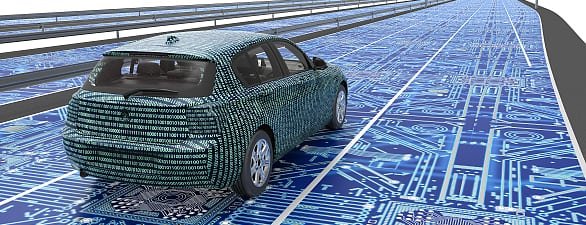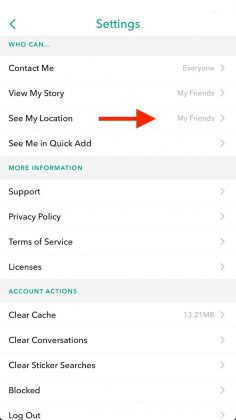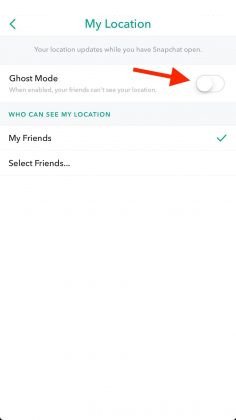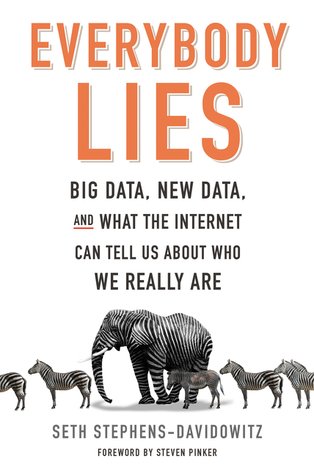Digital Age: They know everything!

What Tech-Companies learn by our data is not only where we are, but rather increasingly who we are. The consumer gets more and more transparent.
A few weeks ago the messenger service Snapchat introduced its new function "Snap Map", which makes it possible to share ones place with friends. On a map you can see, that friend "X" is on a metro strike in Paris or on a summer festival in California. Admittedly the usage of the function is optional, but the one who doesn't care reveals his location unintentionally. Every time the application opens, Snapchat posts its location and not only when you share some Snaps (images and video snippets). The journalist Dani Deahl, reporter at Tech-Blog "The Verge", managed to find out the address of a friend - which she didn't know in advance - with just a few clicks.
She took the telephone and asked her friend:
Do you live at that crossing? Is that your address?
Her friend was confused. Snapchat knows where you are at any time.
Deahl immediately constructed some more horrorible scenarios: What if you are at home alone in the night and the App is opening? What would happen, if you go for a walk and read a Snapchat message? That would be an invite to every criminal. Stalkers could chase you in the night, thieves that ambush you while you are on your way home. Parent-teacher associations in the USA are alarmed. The new function is a nightmare for privacy and a dream for stalkers and pedophiles. The police in Preston has already warned on their Facebook site to be careful with the new function and to activate "Ghost-Mode".
| Settings | My Location | Turn on "Ghost Mode" |
|---|---|---|
 |  |  |
How to turn on "Ghost Mode"Actually the whole new rumor about the map seems like getting all excited about nothing, as Snapchat already knew where its users were located long before the launch of the new feature. How else could Geo-filters which are automatically suggested at the Brandenburger Tor in Germany or at the Eiffel-tower in Paris work, without knowing the GPS data? The one who thinks Snapchat doesn't use any location data is naive. The ability of Tech-companies to track its users even offline, is already known and has been problematised in the "surveillance debate" a lot of times.
Smartphones are the perfect surveillance instrument. Apple knows where the 700 million IPhone-Users are located. Telecommunication providers know, who is dialing into which radio circuit and also with whom they are communicating with.
At Google they say:
In the case Google Maps is allowed to record your activities, the map automatically memorizes where you have parked your car (even if you are parking far away from your destination).
The algorithms of Googlemail are scanning incoming documents and connect the data with the map service. The one who sends his booking confirmation to Google mailbox, may reckon that when opening it the vacation appointment date shows up above the hotel. That may sound quite disturbing, but the problem is not that Tech-Companies know where we are, but rather more and more who we are.
Amazon extracts detailed psychograms out of its customer-buys. The suggestive sentence:
"You May Also Like: To upvote this post and follow me... :-)"
is the outlet of a sophisticated recommendation mechanism. Tech-companies are able to determine the mood of their users in a relatively exact way and present you with some advertisement in the right moment. It is commonplace in consumer psychology: Happy customers are more eager to buy.
When the car drives the driver
The data-scientist Seth Stephens-Davidowitz writes in his book "Everybody Lies: Big Data, New Data, and What the Internet Can Tell Us About Who We Really Are", that Google knows everything about its users: sexual preferences, shopping habits, political preferences. By itself this is not surprising. The paradoxical thing is, that we almost always tell Google the truth. We lie to friends, family members, authorities and also poll-takers, but we are surprisingly honest to the search engine.
Maybe the industry knows its customers better than they know themselves. Car companies tinker in cooperation with Tech-companies on bio-metrical systems like face recognition, to be able to authenticate the owner and personalize driving experience. This smart systems should be able to recognize its driver and anticipate his habits. The system saves the settings of the driver. Seats and driving mirror would adjust in an automatic way.
"It is not always about personalization"
says Zachary Bolton and engineer at Continental to the New York Times.
"We can use the blink of the eyes to precisely determine where you are looking."
According to the New York Times, Ford and Intel would like to figure out in which mood the driver is, to be able to change the music or lighting. There is also a security included: Does the driver look at the roadway? Is he distracted? After that the driving assistant would take over.
A calm driver drives more secure than an irritated or stressed one who drives in an aggressive way and endangers other traffic participants. This serves for security and comfort. But the consumer gets more and more transparent. From the eyes you could read out illnesses like high blood pressure or diabetes. Would car-companies sell this sensitive data to health insurance funds?
With the almost inevitable data outlet we are not just giving away some freedom, but also a piece of identity. What do you think?


Technology grows exponentially, its hard to keep up with everything that is going on all the time. Good post
True words, most of us and even people who are involved into technical stuff do hard with keeping up with the permanently growing technical economy. We actually don't understand those devices we are using.
exactly, and there are always new devices coming out each month, impossible to keep up
This post has received a 2.77 % upvote from @booster thanks to: @n3bul4.